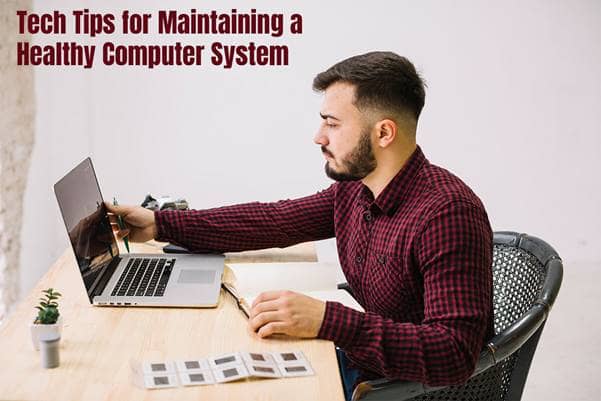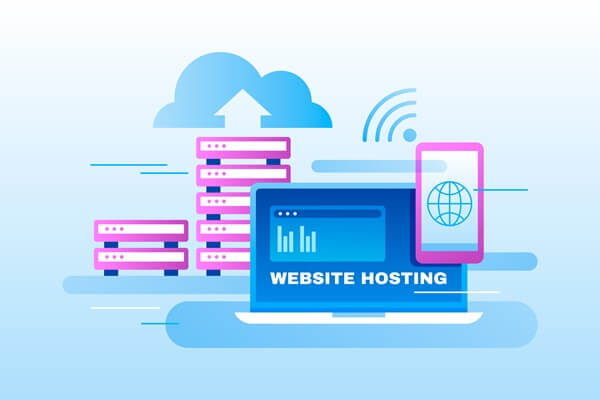Tech Tips for Maintaining a Healthy Computer System

A well-maintained computer is not just faster but also more secure. Typically, laptops and computers last for about three to eight years. However, their lifespan can quickly get eroded if you don’t take the right steps to protect and optimize the system.
Keeping your computer system in top condition means software optimization, hardware upgrades, regular cleanings, and virus protection. Take a look at tech tips to maintain a healthy computer system so the lifespan can be extended, both internally and externally.
Regular Maintenance
- Restart regularly – Yes, it is simple but effective. A simple restart refreshes the system by closing unnecessary programs and clearing memory. When your system starts, it will be visibly faster than before. Make it a point to restart your computer or laptop at least once every two or three days. Restarting is also one of the best solutions to overcome the kernel_task high CPU usage that is mostly complained about by macOS users. Find here all the information you need regarding this.
- Update software – Keep your applications and operating system up-to-date to address security vulnerabilities and enhance performance. Upgrades generally come with the latest security patches, bug fixes and performance improvements.
- Disk cleanup – Cleaning up your system’s disk means getting rid of unnecessary files, caches, and temporary files that are taking up significant storage space. Don’t forget to clear out the Trash Bin or Recycle Bin. Freeing up disk space regularly will prevent your storage space from filling up and your system’s performance won’t be affected.
- Manage startup programs – Too many programs launching automatically at startup can slow down the boot time. Speed things up by removing the unnecessary items from the startup list.
- Defragment your hard drive – Defragmentation is not necessarily a requirement for SSDs but if you are still using a traditional hard drive, this can improve read/write speeds.
Optimize Performance
- Close unnecessary programs – Optimize system performance by quitting or closing applications you are not actively using. This frees up RAM and speeds up performance.
- Manage browser extensions – Improve performance by removing or disabling unused browser extensions.
- Clear browser cache and cookies – Clear your browser cookies and cache regularly to speed up browsing. With time, these can take up significant space and slow down browsing speed.
- Upgrade hardware (if possible) – If your computer or laptop is consistently slow, you can consider upgrading components like storage or RAM. Please check whether your computer or laptop allows for such upgrades.
Security Best Practices
- Strong, unique passwords – Passwords are the first line of defense. Create unique, hard-to-guess passwords for all your accounts. To remember all the different passwords, consider using a password manager.
- Firewall protection – Turn on the firewall to block unauthorized network access.
- Antivirus software – Install a reputed antivirus software for your computer or laptop and update it regularly. This will protect your system against known viruses and malware.
- Backup your data – You must regularly backup essential files to cloud storage or external hard drives. This ensures your important files are safe, and you can always access them in the event of your device getting lost or stolen. Also, regularly review your backups and remove the unnecessary ones.
- Beware of phishing – While you can utilize the built-in security features that come with different operating systems, it is paramount to be vigilant. Phishing is a serious concern in today’s digital age. Be cautious of suspicious links, emails, and attachments. Do not click on anything or download anything from unknown sources.
Also read: 6 Common Security Threats Faced by Organizations Today
Hardware Care
- Clean it regularly – Dust can easily accumulate on your computer system if you are not paying attention and cause overheating. You must regularly clean the components of your computer or laptop, including vents and fans. Use a soft cloth to clean the accumulated dust and maybe compressed air.
- Proper ventilation – Check whether your computer or laptop has adequate airflow. If the vents are clogged or blocked, it will lead to overheating. You must prevent this from happening by properly cleaning the vents and keeping them clean. Also, you must not keep your laptop on your bed or pillow while working to ensure the vents are not blocked.
- Monitor temperatures – Use system monitoring tools to check GPU and CPU temperatures. If the temperatures are too much, take steps to cool it down. Consider using a cooling pad to ensure the temperatures are in control. Please note that you must not take overheating lightly. If this happens consistently, it will lead to damaging the internal components of your system.
- Protect from power surges – Protect your computer or laptop from electrical spikes. You can use a surge protector.
Besides these, remember to keep food and drinks away. Spillage accidents are very common, and they can destroy your device.
Conclusion
Just like your car or bike, your computer and laptop needs to be maintained everyday to run properly. Regularly cleaning and maintaining your device will extend its lifespan and keep your information secure.


